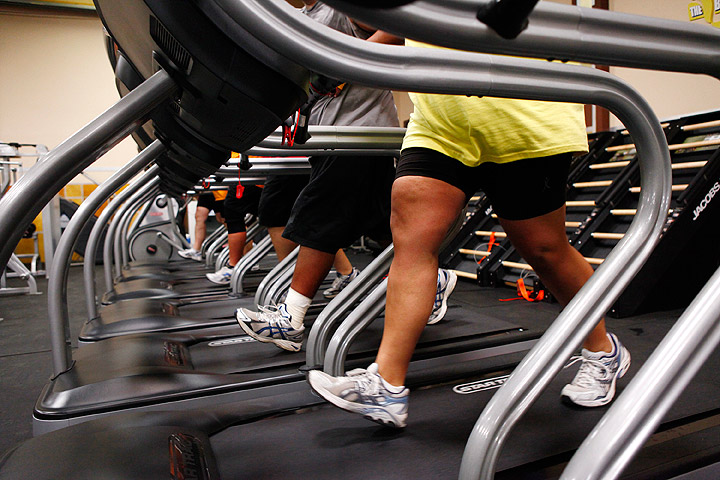TORONTO – The results of this study sound too good to be true: 15 men lost a whopping 11 pounds in a matter of four days. And they kept the weight off, to boot.

Are you already asking what they did during that 96-hour time frame to drastically drop a pant size ?
The Swedish and Spanish researchers that led this research make it sound like a walk in the park. Literally. The healthy but overweight men took leisurely eight-hour walks through the countryside with 10-minute breaks each hour, according to the New York Times.
But the rest of their short-lived weight loss journey wasn’t fun: for starters, the men began their mornings with a 45-minute workout on an arm-pedalling machine. On top of all that exercising, their meals were cut down from their more than 2,000-calorie daily average to a measly 360 calories. They were eating “practically nothing,” according to Men’s Fitness.
READ MORE: Canadian doctor explains why diets fail
Their meals were also in liquid form – either a high-protein drink (about 1.5 litres of water mixed with whey protein) or a sugary treat (1.5 litres of water mixed with sucrose). While walking, they were allowed to drink as much of a low-calorie beverage as they wanted.
Four days of this lifestyle helped them shed 11 pounds on average. Half of the weight loss came from fat; the other half from muscle.
Four weeks later, most of the men lost another two pounds. And at the one-year mark, the men had lost a total of five pounds on average. That’s the part of the research that seems to turn conventional thought on its head – typically weight loss experts say that yo-yo dieting causes consumers to quickly gain the weight they lost and then some.
For the most part, the study’s participants came off the diet unscathed. They had “minor problems with pain in the joints,” and some blisters on their feet from walking.
Did they complain of hunger? No, the scientists say. They “were surprised it was easier than they thought it would be,” lead researcher Jose Calbet, of the University of Las Palmas de Gran Canaria, told the Times.
“We thought they would overeat and regain the weight loss,” he said.
But Canadian experts say this single study shouldn’t be enough to convince you to head outdoors for eight-hour walks fuelled by low-calorie energy drinks.
“Truly, for weight loss to be sustained so too must the intervention,” according to Dr. Yoni Freedhoff, an Ottawa-based doctor and obesity expert.
“Whatever a person chooses to do to lose the weight, if they stop doing those things the weight returns and it appears no differently here,” he warned. In this case, he said there’s no doubt these extreme measures aren’t sustainable.
Dr. Ali Zentner, a Vancouver-based doctor who helps her patients battle obesity, said the study’s findings aren’t surprising.
“If you starve yourself for four days, you’re going to lose weight. I’m not sure it told me anything I didn’t already know,” she told Global News.
READ MORE: ‘What’s your excuse?’ Mom accused of fat-shaming after posting baby-weight loss photo
Her concern is what everyday consumers may take away from the study.
“These kinds of quick-fix solutions do more harm than good. They convey that weight loss is an easy four-day experience but it’s so dangerous for the average Canadian out there to try to combat a significant disease and lifelong chronic problem like this,” she said.
The study was published in the Scandinavian Journal of Medicine and Science in Sports. Read the full findings here.
carmen.chai@globalnews.ca
Follow @Carmen_Chai


Comments